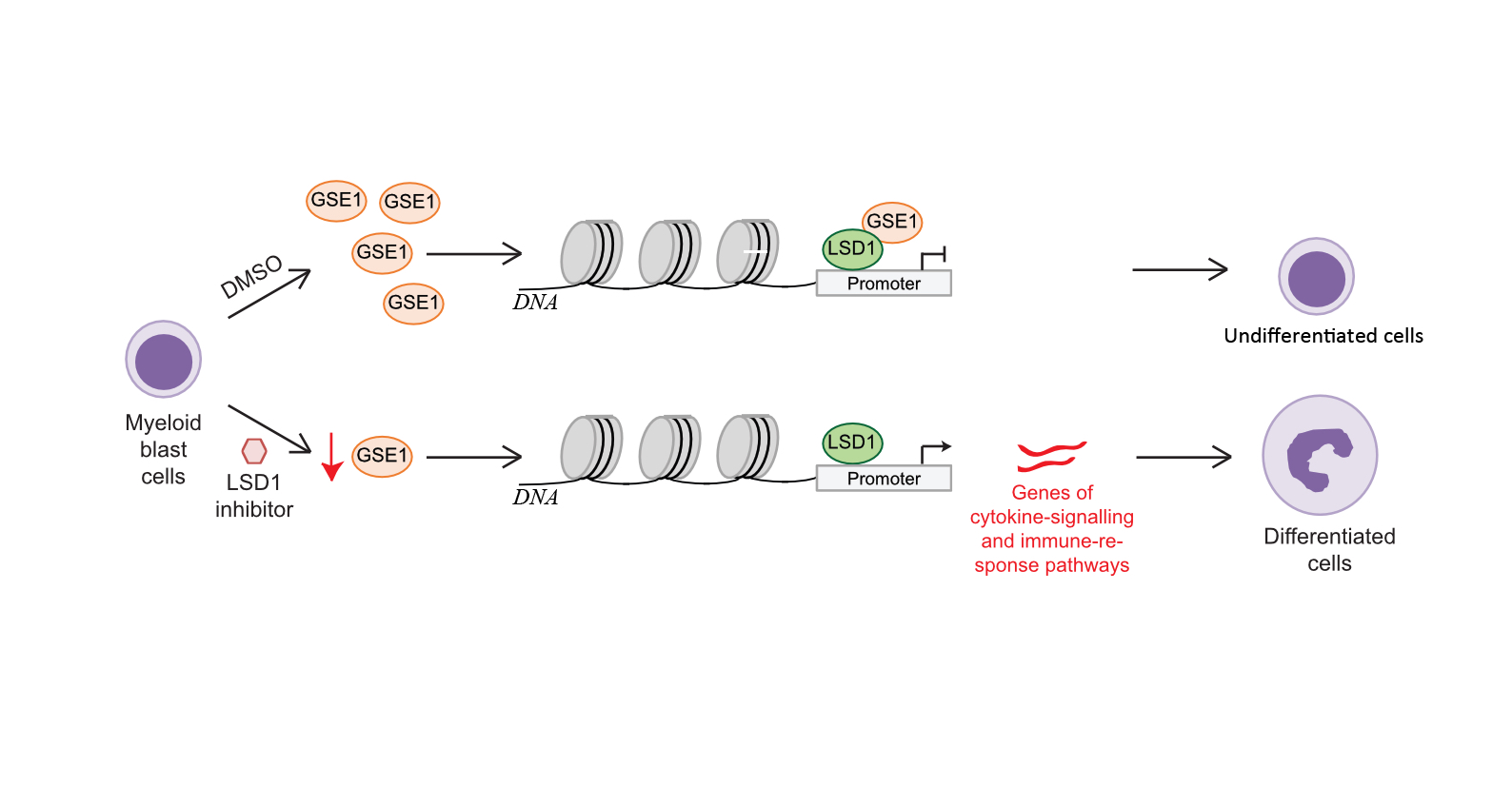
LSD1 protein is frequently overexpressed in tumors and associated with bad prognosis. A number of molecules targeting LSD1 activity have been, indeed, developed as anticancer drugs. Clinical trials have shown benefits of some of these drugs for the treatment of leukemia and some solid tumors.
What is the mechanism underlying the anti-cancer effect of LSD1 Inhibitors?
In a paper by Nicosia, Boffo et al., recently published in Oncogene, researchers supervised by Tiziana Bonaldi, showed that LSD1 inhibition reduces the expression of GSE1, a protein interacting with LSD1. Lower GSE1 levels lead to the reduced GSE1 binding to specific regions of the DNA involved in cell differentiation. Interference with GSE1 expression induces the differentiation of leukemia cells, thus limiting leukemia progression.
The authors observed that both LSD1 inhibition and LSD1 genetic elimination reduced the expression of GSE1 protein (specifically, by interfering with translation, while not affecting neither RNA levels nor protein stability).
In vitro, reduced GSE1 protein expression resulted in decreased cell viability and increased cell death; in vivo, lower GSE1 levels limited tumor progression and prolonged mouse survival.
Exploring the underlying molecular mechanisms, the authors found that the reduced GSE1 expression -either by silencing or via LSD1 inhibition- was the reason for the reduced binding of GSE1 to the DNA, which in turn affected the expression of a number of genes (mainly genes involved in immune and inflammatory response, and cell proliferation). The resulting altered gene expression removed the differentiation block that features leukemia cells -as shown both in cell lines and patient-isolated primary cells- thus inducing differentiation.
So, if the reduced GSE1 expression induces leukemia cell differentiation, when expressed, GSE1 prevents differentiation. Moreover, the authors also demonstrated that GSE1 favors the emergence of cancer stem cell traits, suggesting a role of GSE1 in promoting leukemia progression. Further confirmation of the pro-tumorigenic role of GSE1 emerged from the analysis of patient data: the authors observed that leukemia patients were characterized by higher expression of GSE1 protein, and such a GSE1 increased expression correlated with augmented expression of a number of genes (mainly associated with inflammatory and immune response); moreover, patients with higher GSE1 expression had a higher number of leukemia cells in the blood. Interestingly, APL (acute promyelocytic leukemia) subtype of leukemia patients showing higher GSE1 expression had also a worse prognosis as compared to those with lower GSE1 levels.
In conclusion, the authors discovered a novel mechanism of action of LSD1 inhibitors on leukemia cells, through the regulation -specifically, the downregulation- of GSE1 protein expression. Their work thus proposes GSE1 as a novel -potentially pharmacologically targetable- pro-tumorigenic factor in leukemia.